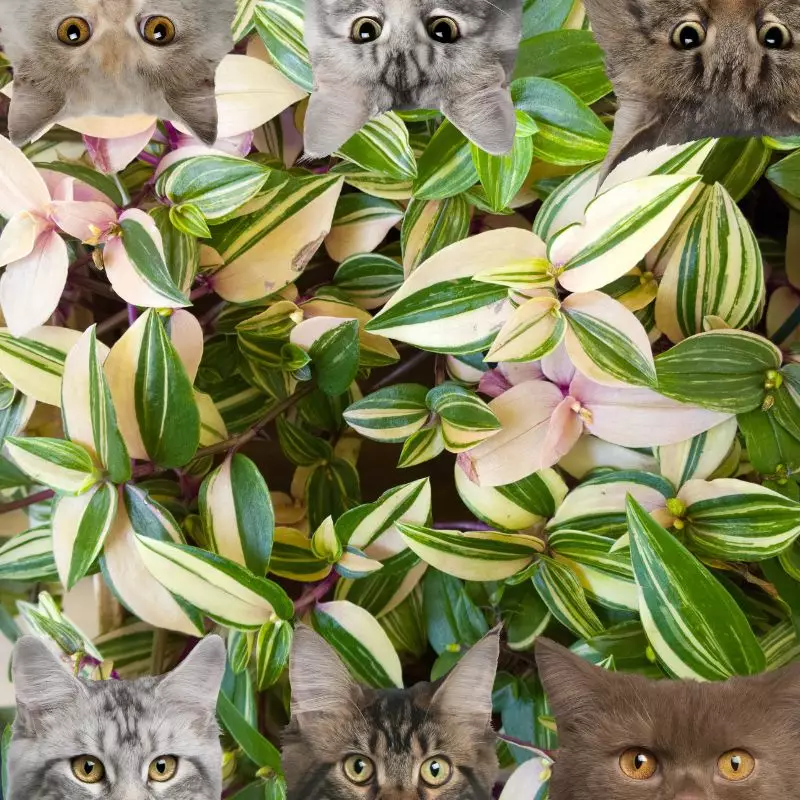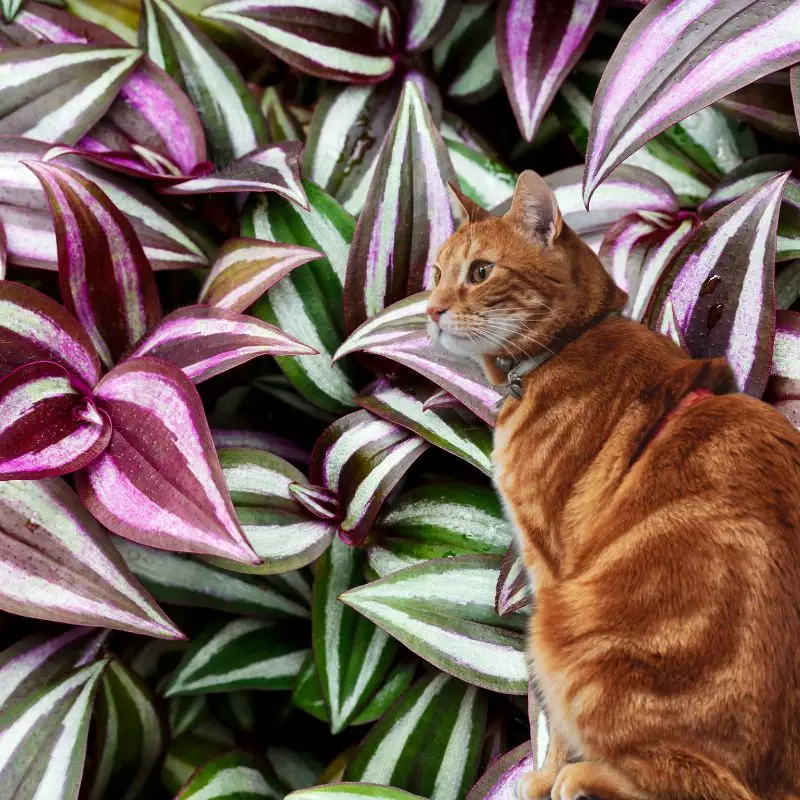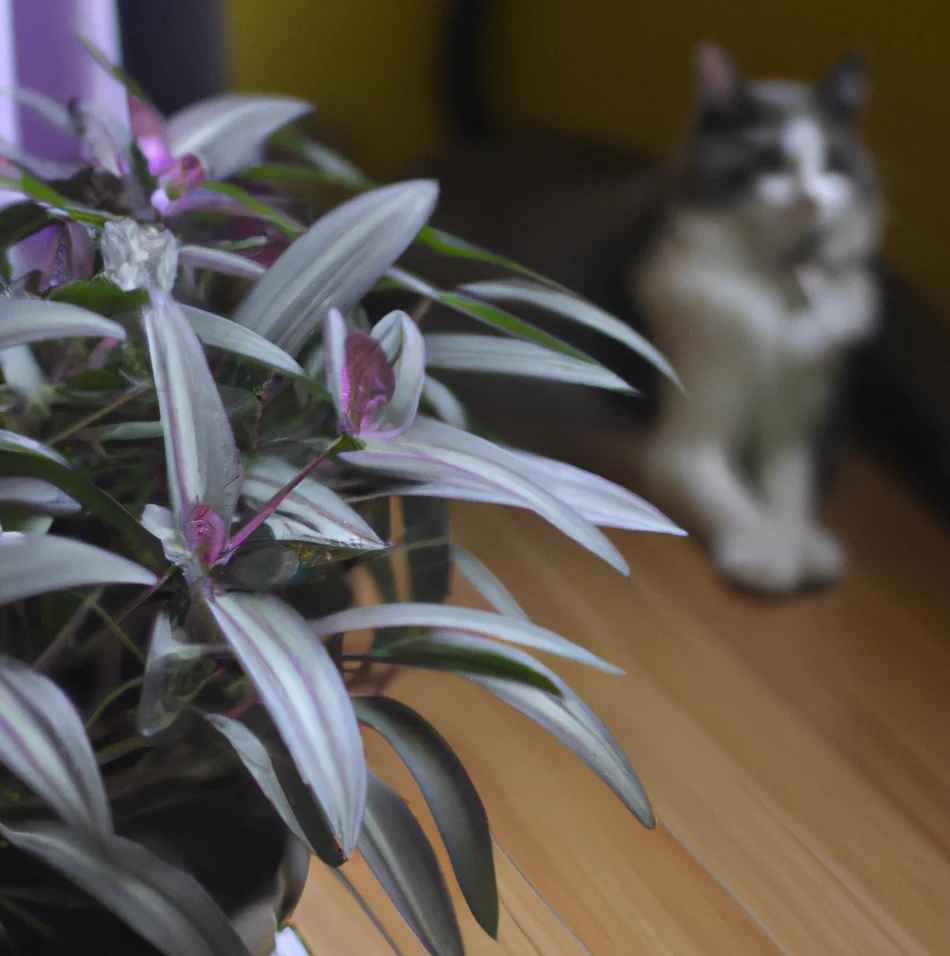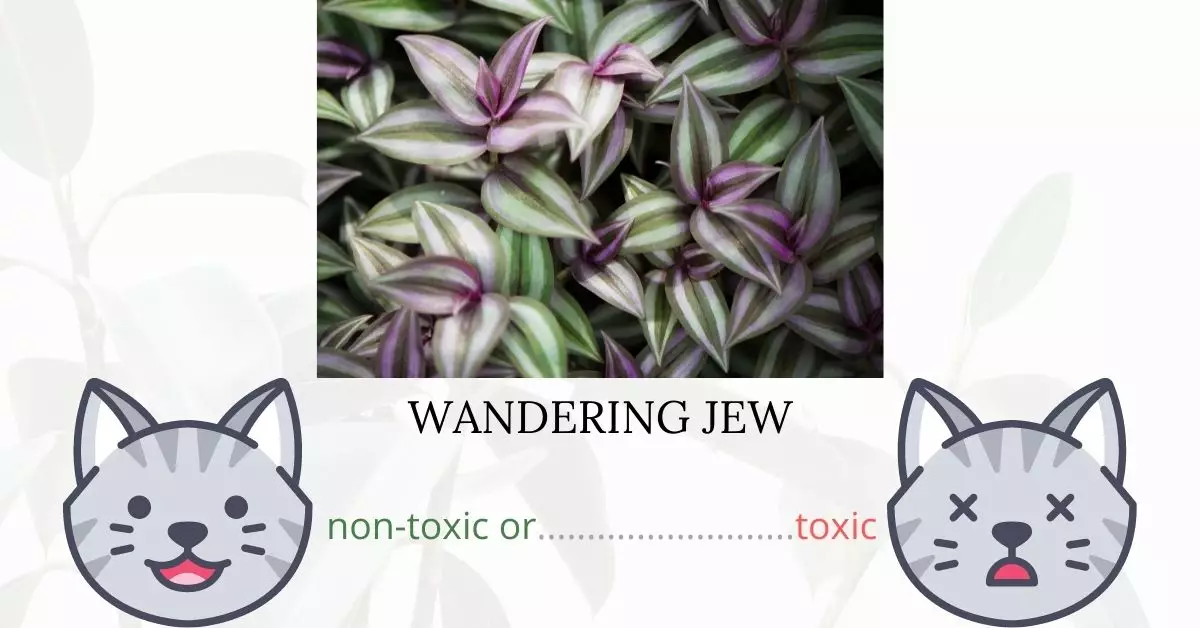Yes, the Inch Plant, also commonly known as the Wandering Jew or Speedy Henry, can be harmful to cats when ingested. The specific toxic principles of the inch plant remain uncertain, but the common symptoms observed in cats after consuming it typically include gastrointestinal distress and skin irritation. Notably, while the plant’s leaves are not reported to elicit a toxic reaction, it is the plant’s stem that has been identified as the main cause of these symptoms in felines.
This article has been written in close collaboration with a team of experienced DVMs (doctors of veterinary medicine). Their expert contributions ensure that we present accurate and up-to-date information regarding the potential risks associated with various plants, specifically the Inch Plant in this context. Furthermore, our research includes information from high-authority websites such as ASPCA and PetMD to provide a comprehensive understanding of the potential dangers each plant poses to cats.
Clinical Signs of Inch Plant or Wandering Jew Poisoning in Cats

If your cat comes into contact with, inhales the aroma from, or ingests the Inch Plant, particularly its stems, it may manifest a range of clinical signs indicative of poisoning. Here are the symptoms, with an explanation for each:
- Drooling: Excessive salivation can occur due to the irritant nature of the plant, especially when ingested. It’s the body’s way of trying to rid itself of the unwanted substance.
- Itching, swelling or redness on different parts of the body: Direct contact with the plant, or even its scent, can cause localized allergic reactions on the skin. This irritation is a result of the body’s response to the foreign substance, leading to itching, swelling, and redness.
- Palmar ulceration: This is a more severe skin reaction where sores develop, primarily on the pads of their paws. It can be caused by prolonged contact or repeated exposure to the plant.
- Conjunctivitis: If the cat rubs its eyes after coming into contact with the plant, the irritants can lead to inflammation of the outermost layer of the eye and the inner surface of the eyelids, resulting in red, watery eyes.
- Itching of the skin: Prolonged exposure to the plant’s irritants can cause persistent itchiness. This is the body’s reaction to counteract the irritation and can lead to further complications if not addressed.
- Hair or fur loss: Continuous itching and scratching can lead to hair or fur loss in the affected areas, leaving patches of bare skin.
- Secondary infection: Open sores or wounds from scratching can become infected if not treated promptly. This can be a consequence of the body’s initial reaction to the plant, compounded by the cat’s scratching.
To ensure your cat’s safety, it’s crucial to seek veterinary advice if you suspect any form of poisoning or if your feline exhibits any of the symptoms mentioned above.
First Aid and Treatment of Inch Plant or Wandering Jew Poisoning in Cats

To ease your cat’s itchiness and skin irritation, the veterinarian will prescribe an ointment or tablets. You may need to apply an ointment to your cat’s skin as frequently as the veterinarian advises. If your cat continues to scratch, he may develop a secondary skin infection that will almost certainly require antibiotic treatment.
If your cat’s mouth has been afflicted and he or she is unable to eat or drink, intravenous fluid therapy may be required. While your cat waits for his symptoms to go away, the fluids will keep him hydrated. If your cat’s eyes get irritated, the vet may recommend rinsing them or prescribing an ointment or drops that you can use at home for a few days.
Recovery from Inch Plant or Wandering Jew Poisoning in Cats

Inch plant poisoning in cats usually has modest symptoms as provided as it is treated early. Immediate medical attention is essential to avert further infection. Treatment and recovery could take longer if your cat already has a secondary infection.
Prevention of Inch Plant or Wandering Jew Poisoning in Cats
Since inch plants are considered invasive, they usually grow fast and mostly anywhere. As a cat owner, it is important to keep yourself familiarized with inch plants and other toxic plants around your neighborhood. Remove this plants right away if they are growing within your home. Keep your cats secured indoors to lessen the chance of getting in contact with an inch plant or other poisonous plants.
If you love plants but have cats at home, check out these lists:





